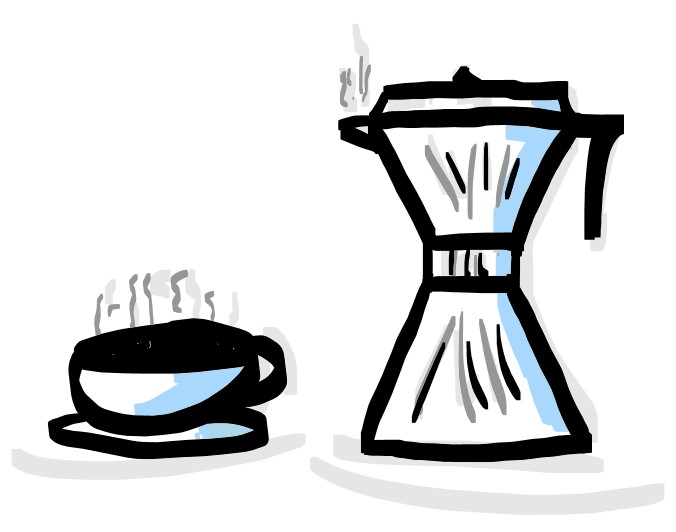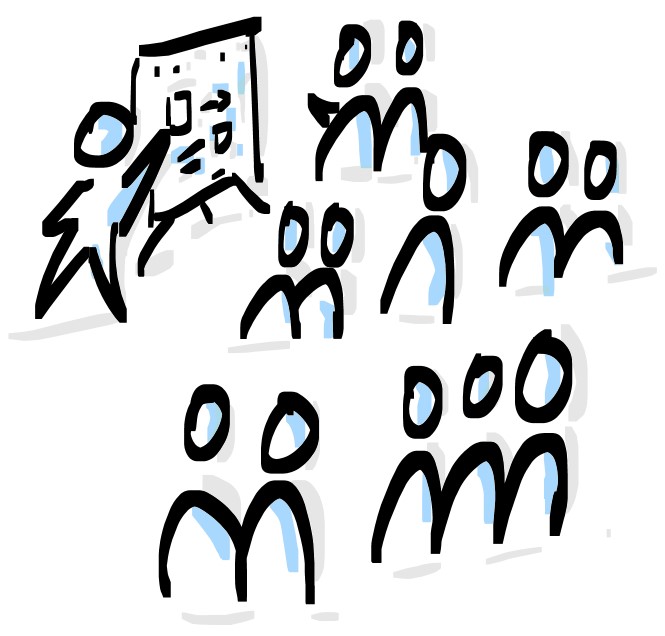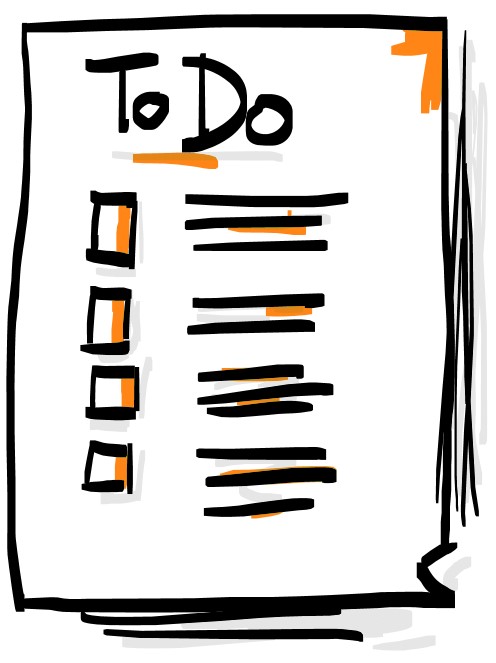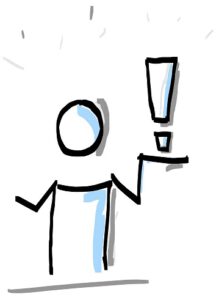You aim for the greatest possible success for yourself and for your team? You want to use your own abilities and also those of the team to the maximum? That’s an easy one: Take a break!
Recently I received a remarkable feedback following a very intensive (and good) workshop.
A critical participant noted that there had been too many breaks.
In addition to the obligatory lunch and coffee breaks, I had always taken a short five- to ten-minute break after 45 minutes, or after an hour at the latest.
I always do this whenever possible. Apparently to some this appears to be sloppiness.
However, the exact opposite is the case: I want maximum success! Without breaks, though, that’s not possible.
It may sound like a contradiction, but short breaks
ensure that participants remain attentive and active longer. The reason is simple:
People only work at a focused level for a certain amount of time (20 to 60 minutes)
No matter what we do
checking emails, writing reports or program codes, giving lectures or listening to them, facilitating workshops, making phone calls or attending meetings: After a certain time, we inevitably get tired, our performance curve drops.
At that point, the only thing that helps is to take a break in order to recover and refocus.
Thus, the rule is:
If you want to get through the day (the week, the year, life) well and efficiently, it is best to take several small to longer breaks during the day (in the week, in the year, in life)!

All of us know this.
At least we suspect it. For example, when there is no progress in a meeting, when writing a protocol or when programming. And that despite perseverance slogans and clenched teeth.
Or when we more and more often come home exhausted, drag ourselves just so in front of the telly and then only can doze off. Despite this, we often ignore the need for breaks..
Even (or especially!) When we realize that our performance drops, we and others become tired, slower, more impatient, maybe even more annoyed and: Making mistakes.
In events with several participants, this happens collectively.Haven’t each of us experienced such often frustrating appointments, meetings, workshops or even entire projects?.
Of course, you can
drive and manage yourself and others with the “Onward-always onward!” principle. This also happens every day and everywhere tens of millions of times.
In the medium to long term, however, it is very likely that this will prevent maximum good results. In addition, energy and resources are wasted and worn out – the complete opposite of success and sustainability.
Such a management and self-management strategy might be appropriate under certain circumstances.
Sometimes. Rarely. But actually: Never.
Pauseless success
Because for individuals as well as for teams or entire companies, the following is true: performance and lasting, sustainable – i.e.: recurring – success are only possible if the renewable human raw materials of concentration and creativity can be rebuilt in regular and sufficient regeneration periods.
Whoever tries to perform without breaks or whoever demands that from his team, is likely to achieve second-best results at best. Precisely because the maximum possible performance level cannot be maintained permanently.
 However, if you are not satisfied with second-best results
However, if you are not satisfied with second-best results
and instead want to be consistently really good and successful, always make sure you’re in as good a shape as possible yourself in the first place.
And then, within your means, make sure that everyone else involved is also doing as well as possible.
You can achieve this
by real (!), that is, concentrated and structured breaks, in which you are not distracted from recovering.If necessary, introduce the breaks also compulsorily.
In self-management, you can do this, for example, by using an tomato timer to remind you to take regular breaks.
If you’re managing a team, always let periods of tension be followed by periods of rest, for example, by setting aside a few days or perhaps even weeks between the end of one project and the start of a new one, which can be used for less energy-consuming cleanup or routine work, or for training.
 Remember:
Remember:
Only breaks will keep you and those around you at the highest possible level of concentration and performance in the medium to long term.
Breaks are the only way to get your tasks done in the best possible way.
Only through breaks can you be maximally successful


 However, if you are not satisfied with second-best results
However, if you are not satisfied with second-best results Remember:
Remember: